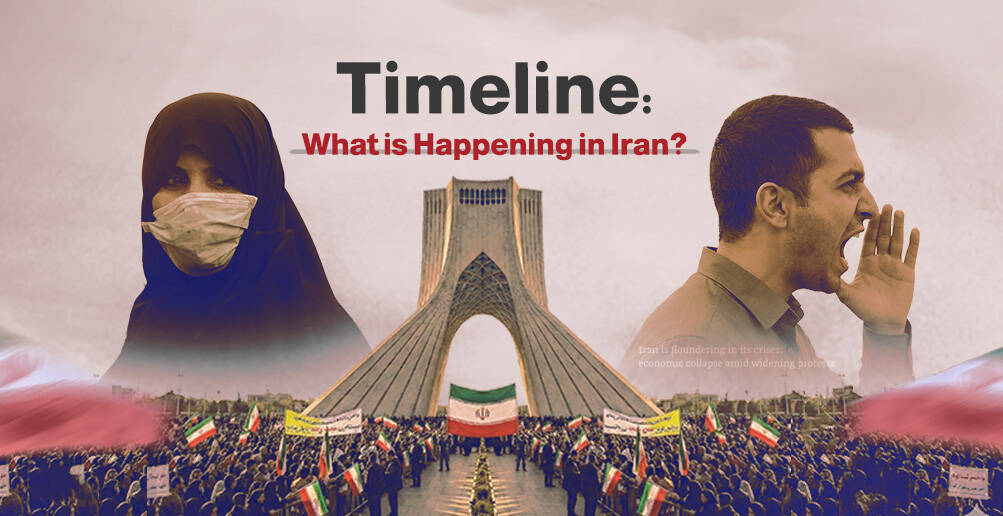Pressure Mounts: What Drove Netanyahu’s U-Turn on the Gaza Deal?

The agreement closely mirrors the proposal announced by U.S. President Joe Biden in May.
In October 2023, Israeli Prime Minister Benjamin Netanyahu declared, “There will be no Hamas in Gaza.” Yet, by January 2025, this bold proclamation had shifted dramatically to: “We are awaiting Hamas’s response to the ceasefire proposal.”
Netanyahu’s stance on Gaza took a complete 180-degree turn. Once staunchly opposed to a prisoner exchange deal and a ceasefire, he eventually signed the agreement on January 15, 2025. Interestingly, the deal closely resembled a proposal announced by U.S. President Joe Biden in May and July 2024. This has raised questions about what pushed Netanyahu to embrace the deal after 467 days of war and delays.
The Trump Factor!
For months, Netanyahu’s rhetoric revolved around phrases like “eradicating Hamas,” “achieving total victory,” and “this is an existential war.” His reluctance to move forward with a ceasefire was reportedly tied to waiting for the arrival of U.S. President-elect Donald Trump.
However, the course of the war did not align with Netanyahu’s military ambitions. Trump clarified that his incoming administration prioritized stability in the Middle East to focus on addressing domestic issues.
According to Israel’s Channel 12, Trump’s team sent clear messages to “Israel” concerning Syria, Lebanon, and Gaza, advising against unnecessary escalation or provocative statements, particularly during the transitional period before his inauguration.
On January 13, aides to Trump revealed that the president-elect emphasized during talks with Israeli officials that he had no intention of engaging in a new war during the early days of his presidency.
Trump’s determination to secure a ceasefire in Gaza before his inauguration on January 20 reflects his broader strategy for regional stability. This approach also hinted at his dissatisfaction with Netanyahu’s escalatory policies.
In January, Trump stirred controversy by posting a video on his social media platform, Truth Social, where economist Jeffrey Sachs criticized Netanyahu’s influence over U.S. foreign policy. Sachs accused Netanyahu of orchestrating “endless wars” in the Middle East, citing the power of pro-Israel lobbying groups in America. The video contained explicit language directed at the Israeli Prime Minister.
Sachs’s sharp remarks reflected growing frustration with Netanyahu’s aggressive approach, suggesting that U.S. patience with his policies had worn thin. These dynamics played a significant role in Netanyahu’s eventual decision to pursue a ceasefire, marking a major shift in his Gaza strategy.
Donald Trump repeatedly warned that “all hell will break out in the Middle East” if the hostages aren’t returned by the time that he takes office. “It will not be good for Hamas. And it will not be good, frankly, for anyone,” Trump said.
This ominous statement seemingly included pressure on Netanyahu, who had failed for months to secure the release of nearly 100 hostages through what he called “military pressure.”
According to academic and Israeli affairs expert Mohanad Mustafa, Netanyahu’s shift in position stemmed from two primary factors.
The first was domestic pressure surrounding the Israeli captives, which transformed their plight into a central issue overshadowing the war itself.
The second was U.S. pressure, driven by Trump’s determination to resolve the “hostage crisis” before his inauguration. Mustafa explained in a televised interview that Trump’s direct involvement highlights his significant influence over the Israeli Occupation’s right-wing government and Netanyahu personally.
The combination of these factors forced Netanyahu to reconsider his hardline approach, marking a pivotal moment in his handling of the Gaza conflict.
On January 16, The Times of Israel reported that a tense meeting between Netanyahu and Trump’s envoy, Steven Witkoff, led to progress in the negotiations.
Coalition Pressures and Gifts
Throughout the months of Israeli aggression on Gaza, both Israeli and international assessments concluded that Netanyahu resisted the deal due to fears of his far-right coalition collapsing—the most extreme in Israeli history.
National Security Minister Itamar Ben-Gvir and Finance Minister Bezalel Smotrich repeatedly threatened to withdraw from the government if Netanyahu proceeded with the deal. Their demands included reoccupying Gaza, forcibly displacing its residents, and building settlements after eliminating Hamas—an ambition Netanyahu had frequently pledged to achieve.
On January 14, Ben-Gvir admitted to successfully stalling the deal for months, underscoring claims that Netanyahu’s calculations were entirely political. Hours before the agreement was finalized, Ben-Gvir urged Smotrich to quit the government if the deal went through, reiterating their threats to withdraw.
However, these threats seemed to lose their sway over Netanyahu, who prioritized relations with the incoming U.S. administration and faced mounting pressures, including increased fatalities among Israeli soldiers and captives in Gaza.
Opposition leader Yair Lapid’s assurance of a political safety net for Netanyahu, in the event of a coalition collapse, further emboldened the prime minister to move forward with the agreement.

“Netanyahu blocked progress on the deal 80 times, simply because he feared Ben-Gvir and Smotrich. But now, he fears Trump more than them,” Israeli journalist Ben Caspit posted on X.
Political analyst Mohanad Mustafa said the Israeli government is eager to grant Trump this achievement and respond to his request, as it has broader regional interests tied to Yemen and Iran.
In another interview, Mostafa noted that “Israel” perceives ending the war as a potential gateway to reviving normalization talks with Saudi Arabia. “This is a strategic priority at this stage, even more significant than the prisoner deal, especially with Trump’s return—he spearheaded the Abraham Accords in 2020.”
Mustafa also suggested that “Israel” envisions Trump granting them more flexibility for targeted military and security operations in Gaza, without escalating to full-scale war, if “Israel” perceives a threat to its security.
Netanyahu, according to Mustafa, might be persuading his coalition partners that Trump could offer them certain concessions on West Bank policies, which is a key concern for Finance Minister Smotrich, who prioritizes settlement expansion.
Mustafa also emphasized that while the Biden administration opposed settlement expansion and annexation in the West Bank—even imposing sanctions on settlers—Trump might relax some of these policies, though he is unlikely to endorse annexation outright.
Shalom Lipner, a fellow at the Atlantic Council, agrees, stating that the real game-changer was “Trump’s influence,” as described by incoming National Security Advisor Mike Waltz.
In his January 15 analysis, Lipner explained that Trump’s ominous—though somewhat vague—warning that hell will break loose in the Middle East unless the “hostages” were released before his inauguration motivated all parties to reach a compromise before the deadline, fearing the consequences.
For the Israeli government, the anticipation that the incoming administration would provide robust support on critical issues—such as countering Iran, strengthening ties with Saudi Arabia, and backing Jewish settlements in the West Bank—further incentivized accommodating Trump’s demands.
Personal Interests
According to Haaretz, if the 20th Amendment to the U.S. Constitution—ratified on January 23, 1933—had set the presidential inauguration date as the 10th instead of the 20th, the five Israeli soldiers recently killed in Gaza might still be alive.
On January 13, the Israeli military reported the deaths of five soldiers and injuries to ten others in Beit Hanoun, northern Gaza, sparking widespread anger in Tel Aviv over the continued “sending of soldiers to their deaths.”
If the inauguration date had been earlier, their families would not have been destroyed, “a hostage deal might have already begun and scores of Gazan lives would have been spared. It's that simple, that appalling, that tragic and that cruel,” Haaretz said, underscoring that Trump’s arrival was the decisive factor pushing Netanyahu toward the agreement.
“Prime Minister Benjamin Netanyahu may whine all he likes about how U.S. President-elect Donald Trump made him do it. He is already selling the ‘I had no choice, we managed to postpone this for months’ message to his ultranationalist, messianic, warmongering ruling coalition partners. But the truth is very clear: he has agreed to a deal he could and should have signed many months ago. But ailing hostages rotting in oxygen-deprived tunnels for 15 months and over 120 Israeli soldiers killed since he declined a previous deal are the least of his concerns. This is who and what he is.”
“Does anyone actually believe that Trump's new Mideast envoy, Steve Witkoff, a savvy real estate developer and investor from New York, ‘made Netanyahu do it’? Well, yes, if you know Netanyahu,” Haaretz wondered.

The Israeli newspaper revealed that the proposed deal had been on the table as early as May and resurfaced in July 2024. However, Netanyahu, invoking the pretext of a “war of existence” aimed at achieving “total victory,” postponed the decision until after the U.S. elections and the presidential inauguration.
Haaretz identified two key timelines behind Netanyahu’s delays. The first stretched from October 2023 to July 2024, during which he believed that prolonging the war and further devastation of Gaza would distance Israel from the catastrophic fallout of Operation al-Aqsa Flood—described as “the worst day in the country’s history.”
The second phase began in July 2024, when President Biden withdrew his re-election bid, continuing through the November elections and leading up to Trump’s inauguration.
In a January 15 piece, Time echoed similar sentiments, attributing the delay to Netanyahu’s political calculations. “Why did it take so long? It takes two to agree to any accord, and undoubtedly there was some recalcitrance on both sides. Yet it was mainly Israeli Prime Minister Benjamin Netanyahu who repeatedly moved the goal posts, adding new conditions despite the enormous suffering perpetuated.”
The magazine highlighted that a major factor in the delay was Netanyahu’s dependence on two far-right ministers, Itamar Ben Gvir and Bezalel Smotrich. Hoping to gradually annex all territory between the Jordan River and the Mediterranean Sea, these ministers viewed the Gaza war as an opportunity to force nearly two million Palestinians to leave the enclave.
Netanyahu’s primary concern, according to Time, was the potential collapse of his coalition, which not only jeopardized his grip on power but also his political future and personal freedom. Ending the war would likely prompt political accountability for the intelligence failure that enabled the October 7 attack, as well as resuming his stalled corruption trial.
The analysis underscored that Netanyahu’s choices were driven by personal interests, prioritizing political survival over resolving the humanitarian crisis in Gaza or securing a deal for “hostages.”
Sources
- A Gaza Ceasefire Is Here. Why Did It Take So Long?
- What if Hamas Doesn’t Release the Hostages by Trump’s Inauguration?
- Analysis | The Gaza Cease-fire and Hostage Deal Is the Same One From Eight Months Ago. Why Did Netanyahu Accept It Now?
- Experts react: Everything you need to know about the Israel-Hamas cease-fire and hostage deal












